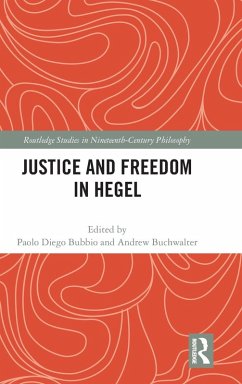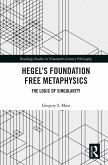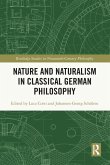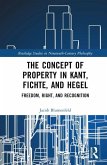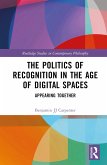This volume explores the relationship between justice and freedom in Hegel's practical philosophy, with a particular focus on the pivotal concept of reciprocal recognition. The contributors analyze the intersubjective relations between individuals and institutions through the lens of Hegel and demonstrate how his account of justice and freedom can be applied to address pressing issues in political philosophy.
Despite extensive scrutiny of the concept of justice by political philosophers, Hegel's unique account has been notably overlooked. What sets Hegel apart is his emphasis on the inseparable link between justice and freedom. Freedom is inextricably tied to an account of just social relations and institutions, while justice itself is intertwined with a robust endorsement of freedom. The chapters comprising this volume examine three crucial dimensions of Hegel's framework for freedom and justice. First, the contributors address how Hegel's distinctive integration of freedom and justice sheds new light on the nature of his practical philosophy. Second, they relate Hegel's theory to other prominent accounts of justice, including Rawlsian forms of Kantian constructivism, Habermas' neo Kantian discourse theory, republican views, neo Aristotelian accounts, and critical theory approaches. Finally, the contributors apply Hegel's reconstructed theory of justice to ongoing debates encompassing criminal justice, distributive justice, global justice, environmental justice, and issues related to racial and gender justice, as well as populism.
Justice and Freedom in Hegel will appeal to scholars and advanced students engaged in research on Hegel's practical philosophy, 19th century philosophy, and political philosophy.
Despite extensive scrutiny of the concept of justice by political philosophers, Hegel's unique account has been notably overlooked. What sets Hegel apart is his emphasis on the inseparable link between justice and freedom. Freedom is inextricably tied to an account of just social relations and institutions, while justice itself is intertwined with a robust endorsement of freedom. The chapters comprising this volume examine three crucial dimensions of Hegel's framework for freedom and justice. First, the contributors address how Hegel's distinctive integration of freedom and justice sheds new light on the nature of his practical philosophy. Second, they relate Hegel's theory to other prominent accounts of justice, including Rawlsian forms of Kantian constructivism, Habermas' neo Kantian discourse theory, republican views, neo Aristotelian accounts, and critical theory approaches. Finally, the contributors apply Hegel's reconstructed theory of justice to ongoing debates encompassing criminal justice, distributive justice, global justice, environmental justice, and issues related to racial and gender justice, as well as populism.
Justice and Freedom in Hegel will appeal to scholars and advanced students engaged in research on Hegel's practical philosophy, 19th century philosophy, and political philosophy.
"Construed as a fundamental articulation of freedom, justice is a category infusing the totality of Hegel's Philosophy of Right. Hegel's concept of the state includes a modern theory of justice, and the state itself is regarded as an objective embodiment of justice. This volume brings together important contributions that elucidate this field of inquiry from various intriguing perspectives."
Professor Klaus Vieweg, University of Jena, Germany
Professor Klaus Vieweg, University of Jena, Germany

